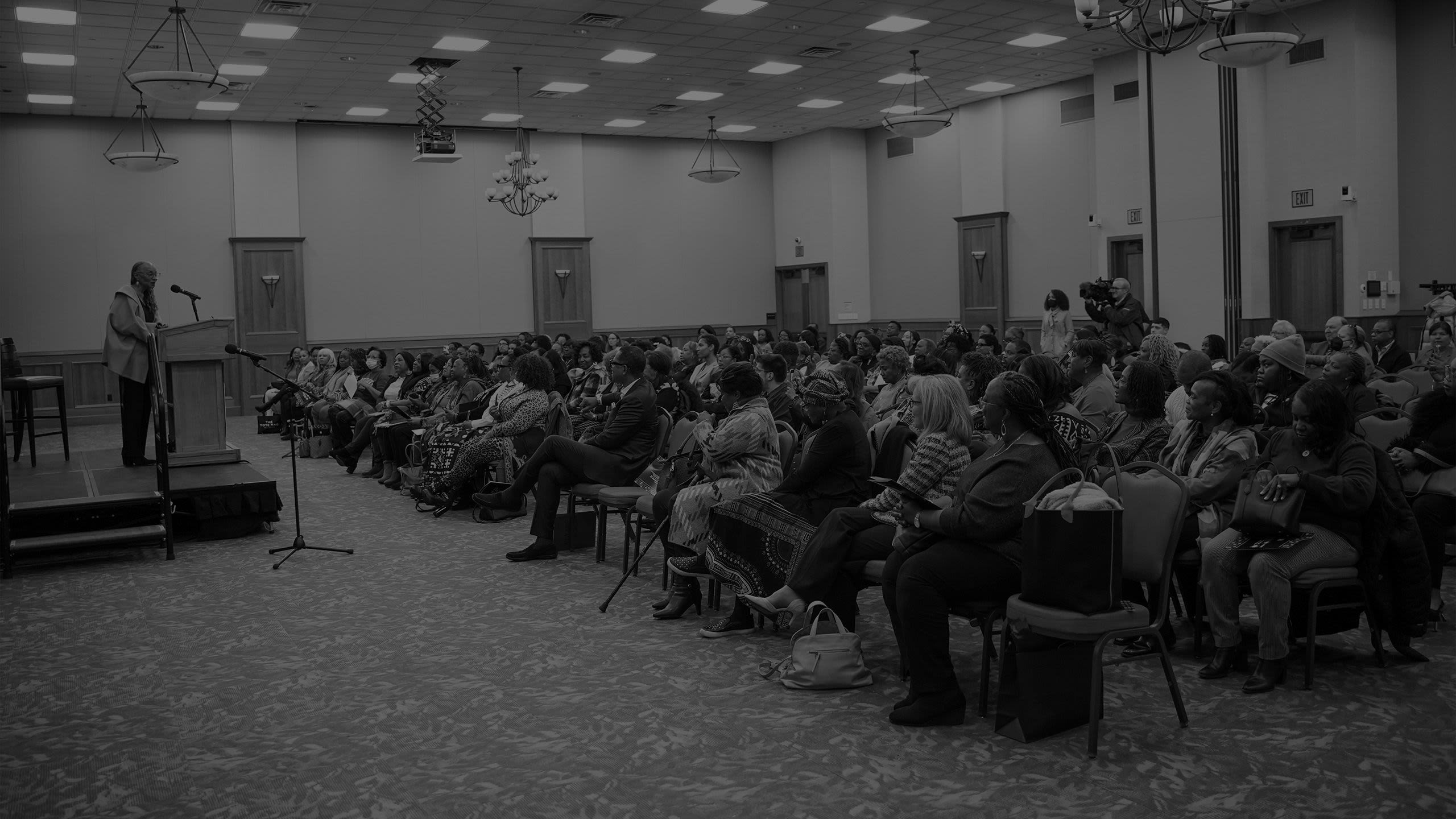For Rutgers–Camden, a Black History Month to Remember
2024’s theme of “African Americans and the Arts” helped showcase the creativity of students and faculty

“What we need now more than ever is the courage to listen intentionally.”
A capacity crowd murmured and nodded in approval while listening to the words of Susan L. Taylor, former editor-in-chief of Essence and a founding writer for the magazine, which has championed Black style and culture for more than 50 years.
Taylor was on campus at Rutgers University–Camden to kick off a series of Black History Month events centered on the ongoing influence of African American communicators and creatives. Her words resonated throughout the university, as the Camden community came together with open minds and hearts to witness the contributions of Black faculty, staff, students, and guest speakers.





For many, a highlight of the month was a lecture by Chancellor Antonio D. Tillis, in which he elucidated the complex questions of identity faced by Afro-Latinos—those with both African and Hispanic ancestry. Attendees had the unique opportunity to hear Chancellor Tillis speak in a scholarly context; a noted expert in Afro-Hispanic culture, literature, and language, he brought his academic and personal experience to the fore.
“Afro-Latinos are a not-so-quietly emerging population of Blacks in America who dare to express the multiplicity of their identity, culture, and ethnicity,” Chancellor Tillis said. “Bound together by the conjoined histories of slavery, colonialism, and oppression, diverse populations in the United States continue to grapple with identity consciousness.”
The lecture explored Afro-Latinos’ struggle to fit in among American racial groups. Afro-Latinos who speak Spanish—or even just have a detectable Spanish accent—can find it hard to gain acceptance into the Black community. Meanwhile, the Latino community can harbor bias and suspicion toward dark-skinned Hispanics. Chancellor Tillis credited modern Afro-Latino entertainers for raising awareness of these divisions and helping to break them down.
“Rappers Fat Joe, of Puerto Rico, and Cardi B, who is of Dominican and Trinidadian ancestry, seek to educate the general U.S. population on the complexities of knowing what you are and the challenges of trying to convince others,” Chancellor Tillis said. Moving to sports, he referenced longtime Major League Baseball outfielder Ruben Sierra, a dark-skinned Puerto Rican who was often called “not Black” even as a member of the New York Yankees, who share a home base in The Bronx with a thriving Afro-Latino population.





Other highlights of Rutgers–Camden’s Black History Month included the virtual conference “Joy… And Pain,” featuring Associate Professor of English Keith Green, whose project “Saved But Enslaved” recently received a research grant to document the lives of Black and Indigenous congregants in the Pilgrims’ first church. Elsewhere, Associate Professor of English Gregory Pardlo celebrated the release of his latest poetry collection, Spectral Evidence. The 2015 Pulitzer Prize winner explores the villainization of Black men in his new poems.
“Our Black History Month events sparked dialogue, understanding, and community,” said Nyeema C. Watson, senior vice chancellor for strategy, diversity, and community engagement. “We hope all who participated have felt the impact of Rutgers–Camden’s commitment to diversity, equity, and inclusion.”

Design: Douglas Shelton
